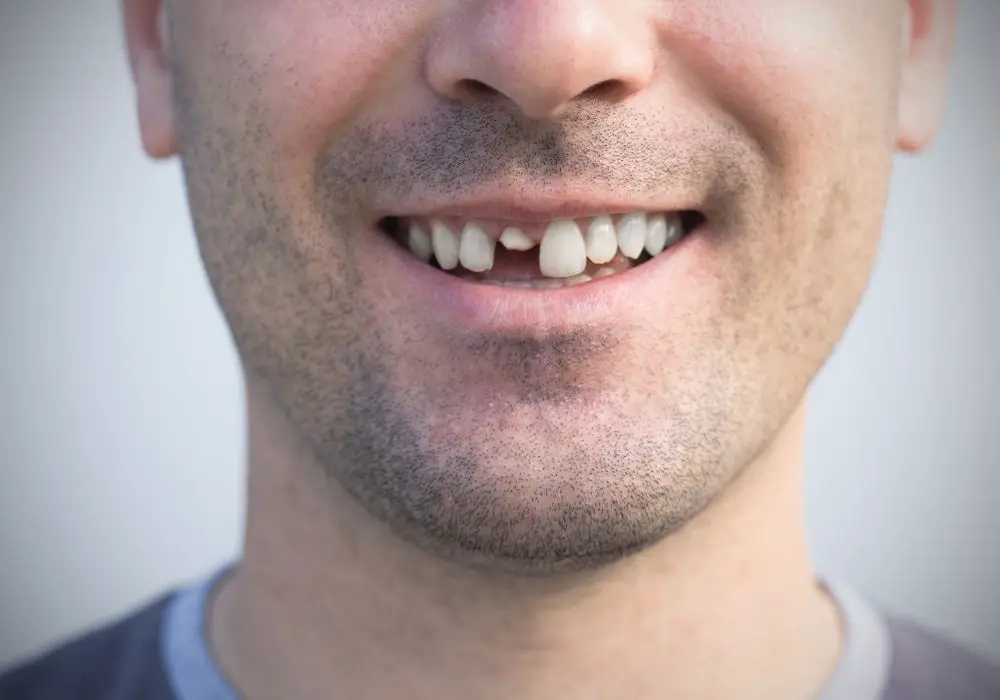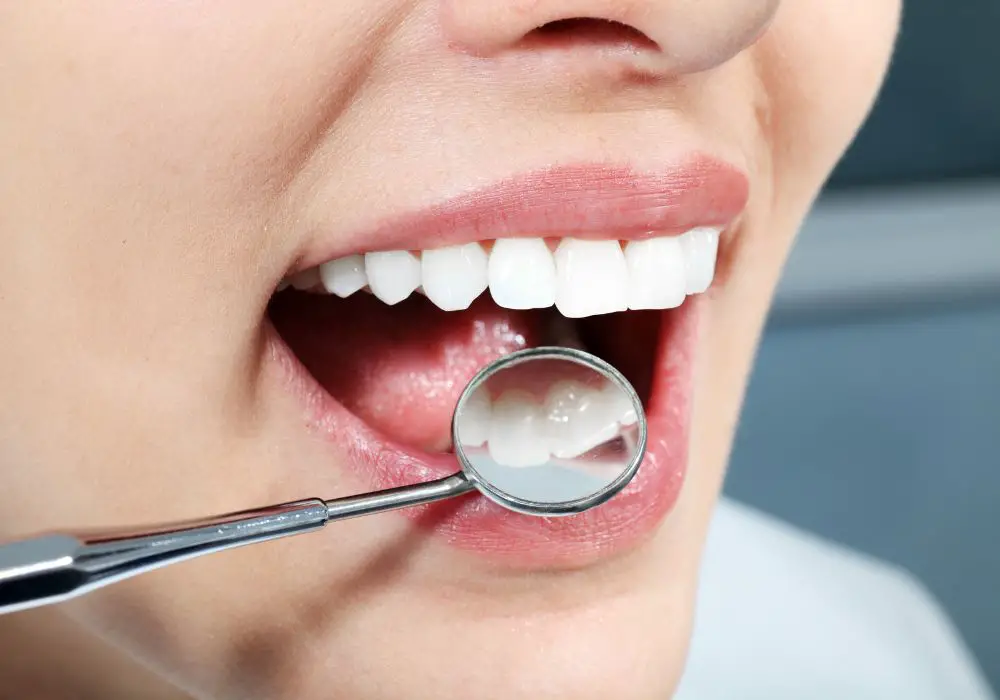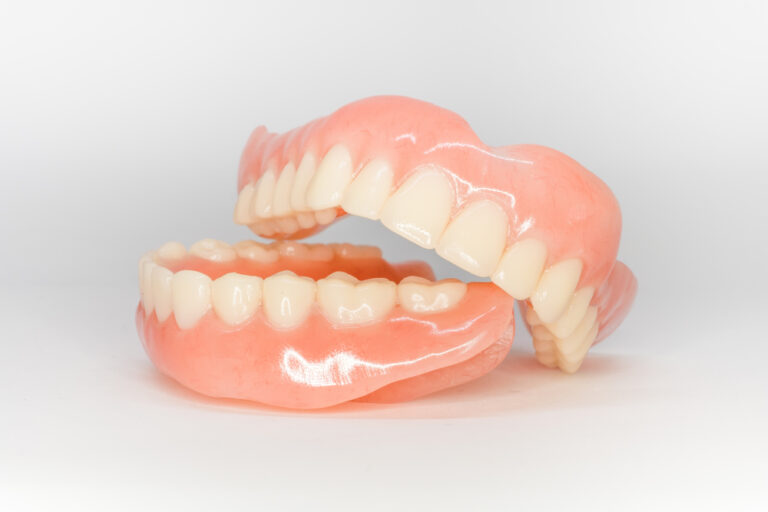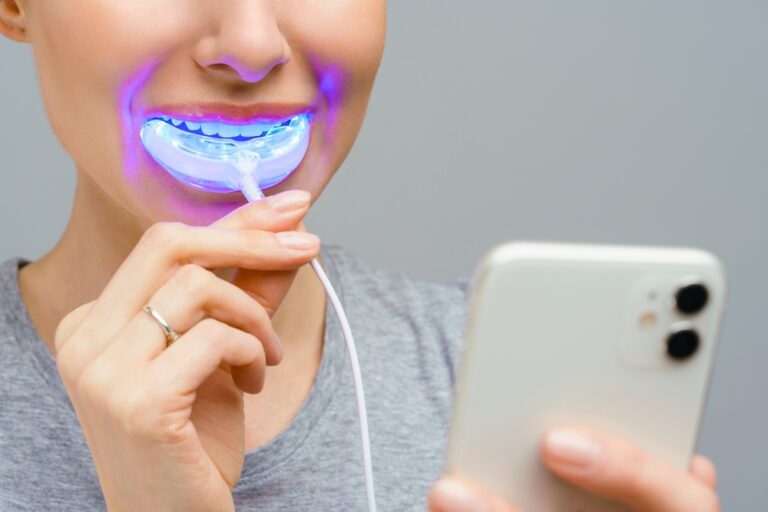If you have a broken tooth, you may be wondering how long you can leave it in your mouth before seeking treatment. The answer to this question depends on the severity of the fracture and your level of discomfort. A small chip or crack may not require immediate attention, but a more severe break could cause significant pain and require prompt treatment.
In some cases, a broken tooth may not cause any pain or discomfort, and you may be able to leave it in your mouth for an extended period. However, it’s essential to understand that leaving a broken tooth untreated can lead to further damage and complications. Bacteria can enter the tooth, causing an infection that can spread to other parts of your body. Additionally, a broken tooth can weaken the surrounding teeth, making them more susceptible to damage.
If you have a broken tooth, it’s best to see a dentist as soon as possible. A dental professional can assess the severity of the fracture and recommend the appropriate treatment. Ignoring a broken tooth can lead to more significant problems down the line, so it’s essential to address the issue promptly.
Understanding Broken Teeth

If you have a broken tooth, it’s important to understand the different types of tooth fractures and what may have caused the break. This knowledge can help you determine the best course of action for treatment.
Types of Tooth Fractures
There are several types of tooth fractures, each with varying degrees of severity:
- Craze lines: These are small cracks that only affect the outer enamel of the tooth. They are usually harmless and don’t require treatment.
- Fractured cusp: This occurs when a piece of the tooth’s chewing surface breaks off. It usually doesn’t cause pain and can be repaired with a filling or crown.
- Cracked tooth: This is when a crack extends from the chewing surface of the tooth down towards the root. If the crack is deep enough, it can cause pain when chewing or sensitivity to hot or cold temperatures.
- Split tooth: This is when a tooth is split into two separate parts. It usually requires extraction.
- Vertical root fracture: This is when a crack starts at the root of the tooth and extends towards the chewing surface. It can cause pain and is usually treated with extraction.
Causes of Broken Teeth
There are several factors that can cause a tooth to break:
- Trauma: A blow to the face or mouth can cause a tooth to break.
- Decay: If a cavity is left untreated, it can weaken the tooth and cause it to break.
- Large fillings: A filling that is too large can weaken the tooth and cause it to break.
- Grinding or clenching: Habitual grinding or clenching of the teeth can cause them to weaken and eventually break.
- Age: As we age, our teeth become more brittle and are more prone to breaking.
If you have a broken tooth, it’s important to see a dentist as soon as possible to determine the best course of treatment. Depending on the severity of the break, treatment options may include fillings, crowns, root canals, or extraction.
Immediate Effects of a Broken Tooth
If you have a broken tooth, you may experience immediate effects that can be uncomfortable and painful. Here are some of the immediate effects of a broken tooth:
Pain and Sensitivity
A broken tooth can cause pain and sensitivity, especially when you eat or drink hot or cold foods and beverages. The pain can be sharp and sudden or dull and persistent. You may also feel pain when you bite down or chew.
Swelling and Inflammation
If the broken tooth has exposed the pulp or nerve of the tooth, you may experience swelling and inflammation in the surrounding gum tissue. This can cause discomfort and make it difficult to eat or speak.
Bleeding
If the broken tooth has caused damage to the gum tissue or the tongue, you may experience bleeding. This can be especially true if the broken tooth is sharp or jagged.
Difficulty Eating and Speaking
A broken tooth can make it difficult to eat and speak normally. You may have to avoid certain foods or chew on one side of your mouth. You may also experience difficulty pronouncing certain words or sounds.
Infection
If the broken tooth is left untreated, it can become infected. An infected tooth can cause a range of symptoms, including pain, swelling, fever, and difficulty opening your mouth.
In summary, a broken tooth can cause pain, sensitivity, swelling, bleeding, difficulty eating and speaking, and infection. It is important to see a dentist as soon as possible to prevent further damage and complications.
Potential Long-Term Complications

If you leave a broken tooth untreated, it can lead to several potential long-term complications. Here are some of the most common ones:
Infections
One of the most significant risks of leaving a broken tooth untreated is the possibility of developing an infection. When a tooth is broken, the inner pulp and nerves can become exposed, making it easier for bacteria to enter the tooth and cause an infection. This can lead to pain, swelling, and even abscesses. In severe cases, the infection can spread to other parts of your body, causing serious health problems.
Damage to Surrounding Teeth
A broken tooth can also cause damage to the teeth surrounding it. When a tooth is broken, it can shift out of place, causing the surrounding teeth to shift as well. This can lead to bite problems, which can cause pain and discomfort when eating or speaking. Additionally, a broken tooth can create sharp edges that can damage the tongue, cheeks, and lips, leading to further discomfort.
Gum Disease
Finally, leaving a broken tooth untreated can also increase your risk of developing gum disease. When a tooth is broken, it can create a space where bacteria can accumulate, leading to inflammation and infection of the gums. Over time, this can cause gum disease, which can lead to tooth loss and other serious health problems.
In summary, leaving a broken tooth untreated can lead to several potential long-term complications, including infections, damage to surrounding teeth, and gum disease. It is essential to seek professional dental care as soon as possible to avoid these complications and protect your overall health.
When to Seek Dental Care
If you have a broken tooth, it is important to seek dental care as soon as possible. Delaying treatment can lead to further complications, such as infection or more extensive damage to the tooth.
Signs and Symptoms
If you experience any of the following signs and symptoms, you should make an appointment with your dentist:
- Pain when chewing or biting down
- Sensitivity to hot or cold temperatures
- Swelling or redness around the affected tooth
- Visible cracks or chips in the tooth
- Bleeding from the tooth or gums
- Loose or shifting teeth
Emergency Situations
In some cases, a broken tooth may require emergency dental care. You should seek immediate treatment if you experience any of the following:
- Severe pain or discomfort that cannot be managed with over-the-counter pain relievers
- Excessive bleeding from the tooth or gums
- A tooth that has been completely knocked out
- A tooth that is severely cracked or broken, exposing the nerve
- Swelling or infection that is affecting your ability to breathe or swallow
If you are unable to see your regular dentist, you can visit an emergency dental clinic or go to the emergency room. In the meantime, you can manage pain and swelling by applying a cold compress to the affected area and taking over-the-counter pain relievers as directed.
Remember, the sooner you seek dental care for a broken tooth, the better your chances of saving the tooth and avoiding further complications.
Treatment Options for Broken Teeth

If you have a broken tooth, there are several treatment options available. The type of treatment you need will depend on the severity of the break, the location of the tooth, and other factors. Here are some common treatment options for broken teeth:
Dental Bonding
Dental bonding is a cosmetic procedure that can repair small chips or cracks in teeth. During the procedure, your dentist will apply a tooth-colored resin to the affected area and then shape and polish it to match the rest of your tooth. Dental bonding is a quick and relatively inexpensive option for repairing minor damage to teeth.
Crowns
If the damage to your tooth is more extensive, your dentist may recommend a crown. A crown is a cap that is placed over the damaged tooth to restore its shape, size, and strength. Crowns can be made from a variety of materials, including porcelain, metal, or a combination of both. Your dentist will help you choose the best type of crown for your needs.
Root Canal Therapy
If the break in your tooth has exposed the pulp (the soft tissue inside your tooth), you may need a root canal. During this procedure, your dentist will remove the damaged pulp and replace it with a filling material. Afterward, a crown is usually placed over the tooth to protect it and restore its function.
Tooth Extraction
If the damage to your tooth is too severe to be repaired, your dentist may recommend extraction. This involves removing the entire tooth from your mouth. After the extraction, your dentist may recommend a dental implant or bridge to replace the missing tooth and restore your smile.
It’s important to seek treatment for a broken tooth as soon as possible to prevent further damage and infection. Talk to your dentist about which treatment option is best for you.
Prevention Strategies
To prevent a broken tooth, there are several strategies that you can follow. These strategies include regular dental check-ups, proper oral hygiene, and the use of mouthguards.
Regular Dental Check-ups
Regular dental check-ups are essential to prevent a broken tooth. During these check-ups, your dentist can identify any potential issues that may lead to a broken tooth. Your dentist may also recommend treatments to strengthen your teeth, such as fluoride treatments or dental sealants.
Proper Oral Hygiene
Proper oral hygiene is crucial to prevent a broken tooth. Brush your teeth twice a day with a fluoride toothpaste, and floss at least once a day to remove any food particles that may be stuck between your teeth. Avoid using your teeth as tools to open packages or bottles, and avoid chewing on hard objects such as ice or hard candy.
Use of Mouthguards
If you participate in sports or other physical activities, wearing a mouthguard can help prevent a broken tooth. Mouthguards are designed to absorb the impact of a blow to the face, reducing the risk of dental injuries. There are different types of mouthguards available, including custom-fitted mouthguards, boil-and-bite mouthguards, and stock mouthguards. Talk to your dentist about which type of mouthguard is best for you.
By following these prevention strategies, you can reduce your risk of a broken tooth and maintain good oral health. Remember to schedule regular dental check-ups, practice proper oral hygiene, and use a mouthguard if you participate in sports or other physical activities.
Frequently Asked Questions
Can a cracked tooth be left untreated?
It is not recommended to leave a cracked tooth untreated. Cracks can worsen over time and lead to more serious dental problems. If you suspect that you have a cracked tooth, it is important to see a dentist as soon as possible.
What are the risks of leaving a broken tooth in your mouth?
Leaving a broken tooth untreated can lead to a variety of problems, including infection, decay, and further damage to the tooth. Additionally, broken teeth can make it difficult to chew and speak properly, and can also be unsightly.
How long can you leave a broken tooth untreated?
It is best to seek treatment for a broken tooth as soon as possible. However, the length of time that you can leave a broken tooth untreated depends on the severity of the damage. If the tooth is only slightly chipped, it may be safe to wait a few days or even weeks before seeking treatment. However, if the tooth is severely broken or causing pain, it is important to see a dentist right away.
Is a broken molar considered a dental emergency?
A broken molar is considered a dental emergency if it is causing pain or if there is a risk of infection. If you have a broken molar, it is important to see a dentist as soon as possible to prevent further damage and to ensure that the tooth can be saved.
What happens if you don’t fix a chipped tooth?
If you don’t fix a chipped tooth, the damage can worsen over time and lead to more serious dental problems. Additionally, a chipped tooth can be unsightly and make it difficult to chew and speak properly.
Is it safe to leave a half-broken molar tooth in your mouth?
It is not safe to leave a half-broken molar tooth in your mouth. Half-broken teeth can cause pain and infection, and can also lead to further damage to the tooth. If you have a half-broken molar tooth, it is important to see a dentist as soon as possible to prevent further damage and to ensure that the tooth can be saved.






